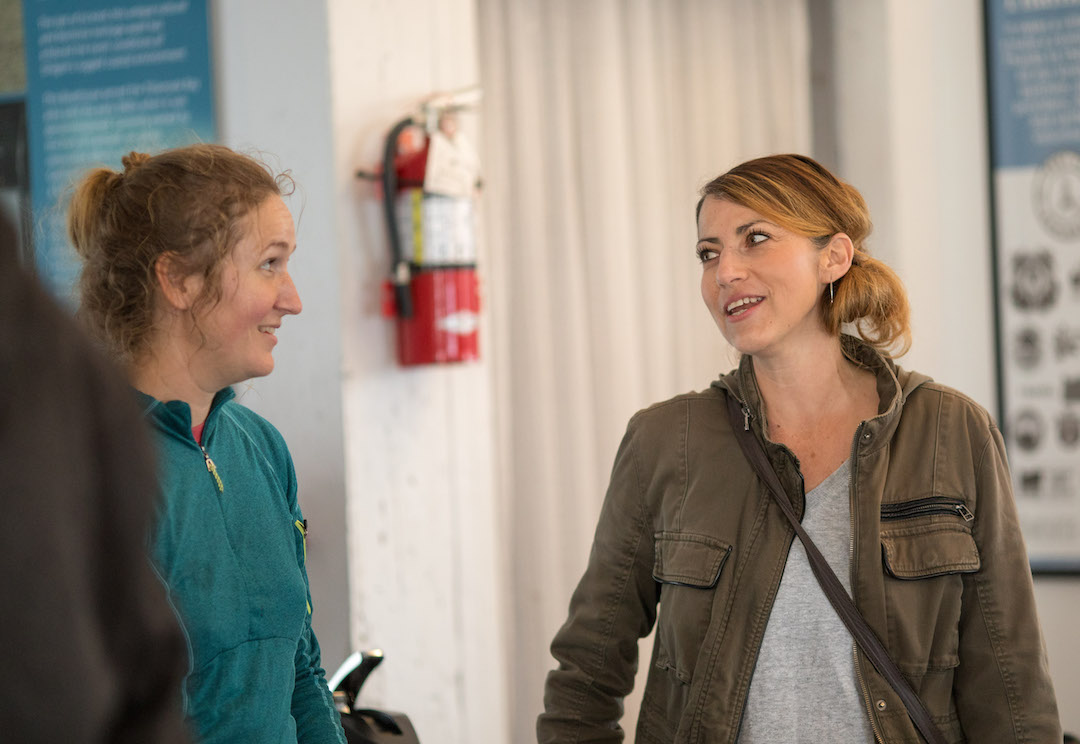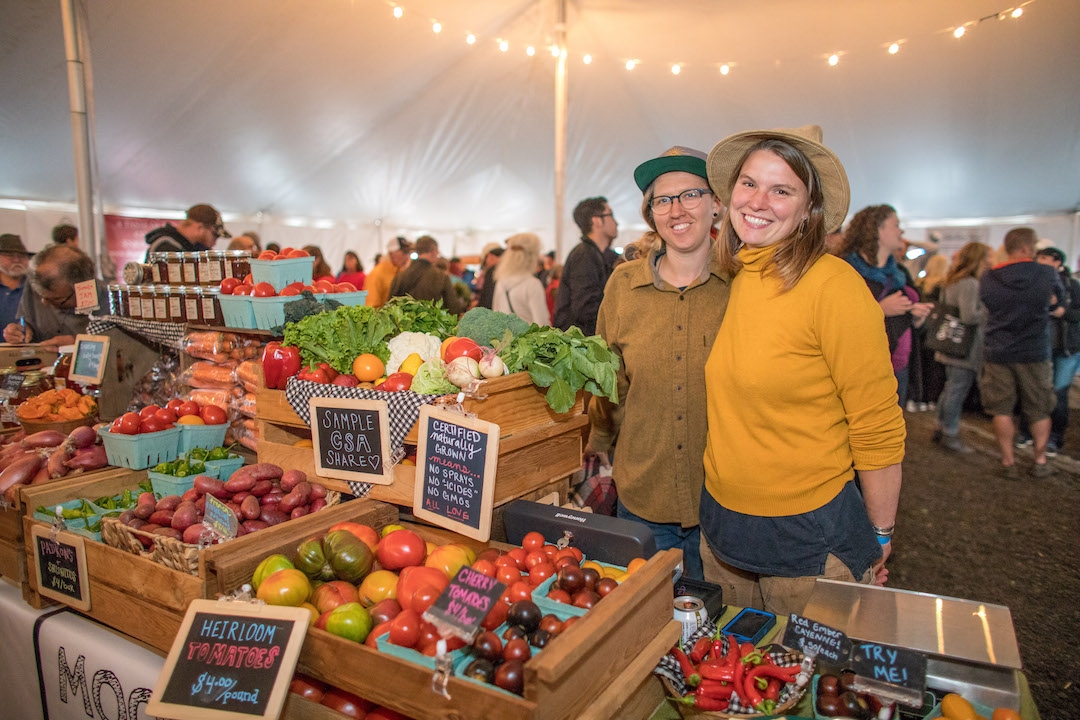Brand Story: Tillamook County has a multi-generational tradition of farming, fishing, harvesting and food production. For more than 100 hundred years, dairy farms have been family run and part of a successful, farmer-owned cooperative, the Tillamook County Creamery Association, makers of Tillamook Cheese.
The county is also home to other major food and beverage processors and producers, such as Tillamook Country Smoker, Pacific Seafood, Werner Meats, Jacobsen Salt and Pelican Brewing.
“There is a shift happening in agriculture, from the retiring farmer who owns his land to the emerging farmer looking for land,” says Nan Devlin, executive director of Tillamook Coast Visitors Association (TCVA) and the North Coast Food Trail. “We’re seeing more women start farms and be captains of fishing boats in Tillamook County. They’re growing new crops and reaching new markets through personal relationships with chefs.”
According to the U. S. Department of Agriculture’s National Agricultural Statistics Service, over the past five years, the number of male farmers has fallen, while the number of women has increased: Female producers now make up 36% of farmers, a 27% increase from 2012. Now, 56% of farms have at least one female producer, although only 38% have a female primary producer, the person who makes the most decisions on the farm.
Help from the Business Oregon Rural Opportunity Initiative grant
In February 2019, the Partners for Rural Innovation, which includes Oregon State University Extension, Small Business Development Center, Economic Development Council, Tillamook Bay Community College and TCVA, were awarded a $45,000 grant from the Business Oregon Rural Opportunity Initiative program. The grant was used for three projects: 1) bring FarmDirect and Recipe to Market workshops to Tillamook; 2) develop a North Coast “grown” food brand to reach more food buyers and markets; and 3) conduct a feasibility study to determine the need and type of food distribution system, whether that was a brick-and-mortar food hub or a mobile pick-up and delivery service.
 Kristen Penner, commercial crabber, meets Maylin Chavez, chef and owner of Olympia Oyster Bar in Portland, at the Garibaldi producers event in October.
Kristen Penner, commercial crabber, meets Maylin Chavez, chef and owner of Olympia Oyster Bar in Portland, at the Garibaldi producers event in October.
“The FarmDirect workshop, conducted by Kelly Streit of OSU Extension, drew 14 participants, all women, and all but two were under the age of 40,” recalls Devlin. “This was followed by back-to-back Recipe to Market workshops, conducted by Sarah Masoni of the Food Innovation Center. The majority of the participants were also women.”
Lauren Sorg, executive director of Food Roots in Tillamook, led the feasibility study and focus groups to determine food hub needs and how a food brand tied to a destination could help market locally sourced crops, fish, beverages and products. The next steps include a business plan, entrepreneurial opportunities and public/private partnerships.
Jennifer Bloeser, CEO of Oregon Coast Wasabi, has found a market for fresh wasabi with chefs in steak houses, and vegetarian and Asian restaurants. “More than 90% of the wasabi served in restaurants is fake,” says Bloeser, whose farm is located near Pacific City where the environment is cool and damp. “The entire wasabi plant is edible, and chefs are discovering its many uses, from salads to cocktails.”
 Lauren Sorg of Food Roots and Jeff Wong of CS Fishery conducted a “speed dating” session with producers and buyers at a recent producers networking event.
Lauren Sorg of Food Roots and Jeff Wong of CS Fishery conducted a “speed dating” session with producers and buyers at a recent producers networking event.
Ginger Edwards and her husband Brigham work the land on their farm, North Fork 53 in Nehalem. They first grew crops for local restaurants and farmers markets, but both were interested in botanicals and teas. They planted tea, suitable to a coastal environment, and two years ago, started selling at farmers markets. Soon after, they began a tea subscription club called Communiteas, and now offer several blends. They even experimented with tea-infused ice pops, which were sought after during the summer at farmers markets.
Kristen Penner, a commercial crabber out of Garibaldi, has been actively involved in several fisheries projects. Working with EcoTrust, Rural Development Initiatives, OSU Sea Grant, the Port of Garibaldi and Columbia-Pacific Economic Development District, Penner helped develop the Garibaldi Seafood Connect, which helps small commercial fisheries sell direct to consumers. She has conducted Shop at the Dock tours, Fish Biz Marketing workshops, and, working with Food Roots and TCVA, has hosted producer/chef networking events, with guest chefs from Portland. These networking events give farmers an opportunity to find out what chefs need, and to show them what interesting new crops they are growing or the status of the local fish supply.
“In recent months, I’ve received calls from farmers looking for more land to work. The demand is increasing, especially since the launch of the North Coast Food Trail in 2018,” says Devlin. “It shows that tourism, farming and fishing are intertwined, and that’s because visitors want local experiences, including locally sourced foods. Our farmers and fishers are the catalyst of this growth.”
Brand stories are paid content articles that allow Oregon Business advertisers to share news about their organizations and engage with readers on business and public policy issues. The stories are produced in house by the Oregon Business marketing department. For more information, contact associate publisher Courtney Kutzman.





